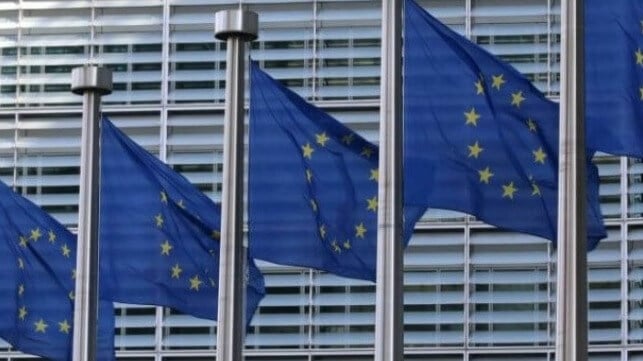FuelEU Maritime Regulation Enters Into Force

On January 1, the European Union's new carbon-intensity mandate - FuelEU Maritime - entered into force, requiring European shipping interests to make hard choices about fuel-efficiency and low-carbon propulsion. Compliance options include paying more taxes, cutting down fuel consumption or switching to reduced-emissions fuel sources.
To help achieve its emissions goals for shipping, the EU has imposed a schedule of progressively-higher fees on emissions per tonne of transport work for ships over 5,000 GT. The fee structure is part of the bloc's broader plan to reduce greenhouse gas intensity from shipping by 80 percent by 2050 (compared with 2020 levels).
The legislation requires shipowners to record and report the well-to-wake greenhouse gas intensity of each vessel's operations. Non-compliance is a legal option, but comes with a high price penalty: €2,400 per tonne of VLFSO energy equivalent - about triple the price of bunker fuel - for emissions over the limit. Repeated, multiyear noncompliance increases the penalty.
To avoid these steep fees, operators can pool emissions among multiple ships, allowing one low-carbon vessel to compensate for several high-emitting legacy hulls. Shipowners can also borrow from their future year compliance in order to reduce costs, though they are required to make up the difference later.
The final option is simple compliance with the FuelEU intensity targets, either by increasing vessel efficiency, adding wind propulsion or switching to green fuels. The target starts with a two percent reduction this year, then rachets down every five years to reach an 80 percent reduction by 2050.

that matters most
Get the latest maritime news delivered to your inbox daily.
FuelEU Maritime is unique to Europe, and many European owners believe that if it stands alone as a regional requirement, it will make them less competitive on the global market. Danish Shipping, the representative body for operators like Maersk, Torm and Stena, supports the new regulation but says that there is a need for global climate regulation of the shipping industry.
"I hope FuelEU Maritime can help drive both the demand for and production of green fuels for shipping. Currently, the lack of green fuels at competitive prices is the biggest challenge for the green transition of shipping," said Nina Porst, director of environment at Danish Shipping. "While the EU’s regulation of shipping emissions is undoubtedly a step in the right direction towards climate neutrality, it is crucial that EU countries also push for international rules within the IMO, applicable regardless of where ships operate."
